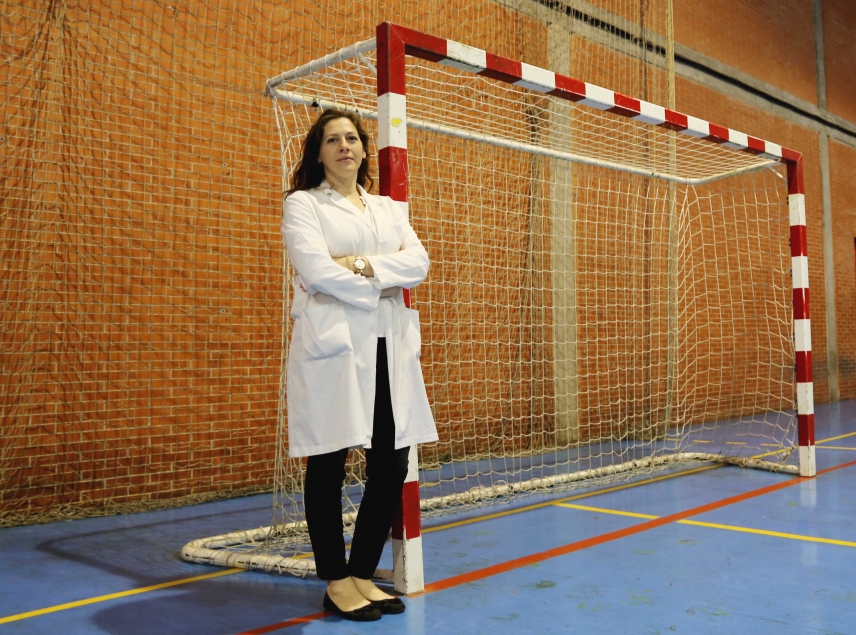 Diana Vaamonde, a researcher from the Department of Morphological Science at the University of Cordoba, carried out a series of studies that consider the potential negative effects that physical exercise can have on male fertility. The idea is to focus on contraindications when it comes to establishing life habits that do not jeopardize birth rates, which are already quite low nowadays.
Diana Vaamonde, a researcher from the Department of Morphological Science at the University of Cordoba, carried out a series of studies that consider the potential negative effects that physical exercise can have on male fertility. The idea is to focus on contraindications when it comes to establishing life habits that do not jeopardize birth rates, which are already quite low nowadays.
Smoking, unhealthy eating habits, pollution and recreational drug use are well-known enemies of reproductive health, but is exercise? After performing a study of individuals who exercise often and intensely, it was discovered that the higher the levels of these indicators, the lower the semen quality. This means a kind of semen that, though the number of sperm cells in it does not considerably decrease, has lower velocity and sperm morphology and defects it its DNA (a higher rate of DNA fragmentation can be observed in top athletes).
The change in the testosterone-cortisol hormonal rate (cortisol is the main hormone related to stress) reveals a possible decrease in endogenous testosterone as a result of altering the hypothalamic-pituitary-gonadal axis (HPG axis) or an increase in cortisol. A changed HPG axis could indicate the existence of hypogonadism (changes in normal testicular functionality) that affects reproductive potential. Stress stemming from competition or pressure to get certain sports results in order to keep a scholarship or obtain a better financial situation, increases cortisol levels interfering with the HPG axis. Moreover, as a consequence of doing excessive physical exercise, reactive oxygen species are produced, and if they are not counteracted, they could lead to a high level of oxidative stress. This also has been proven to alter gonad functionality and sperm lineage cells, above all DNA integrity.
Doping is another element that directly reverses hormone levels. Among top athletes, in addition to a heavy load of exercise, cases of doping show a higher frequency of increased fertility problems only too often. In some disciplines, such as those that rely on strength, the need to increase muscle mass and performance leads some athletes to include endogenous testosterone (by means of anabolic-androgenic steriods) among their habits, which ends up affecting the normal secretion of that hormone.
Lastly, when reviewing potential negative effects on athletes’ fertility, we can find erectile dysfunction, which is more widespread among cyclists and profesional horseback riders due to the compression of several structures such as arteries, veins and nerves in the pelvic region.
Medals or offspring?
Beyond the dichotomy of reducing or not reducing physical training, which is inconceivable in this population, this situation spotlights the need for awareness. Sports are good for one’s health, but in the right amount. Even though these changes are more common among top athletes, the current high turnout at sporting events also means that the general public undergoes intense workouts in order to take on challenges such as marathons, triathlons and other sports competitions. Facing these situations without the help of professionals or without proper information can have consequences, even if they are only temporary.
Guidelines for proper workouts, functional recoveries between workouts and information on the potential risks that this lifestyle entails have become necessary for society to understand all aspects of exercise. Once they have this knowledge, athletes could preserve their semen before focusing solely on their sport careers.
Sansone, A., Sansone, M., Vaamonde, D., Sgrò, P., Salzano, C., Romanelli, F., Lenzi, A., … Di Luigi, L. (2018). Sport, doping and male fertility. Reproductive biology and endocrinology : RB&E, 16(1), 114. doi:10.1186/s12958-018-0435-x


